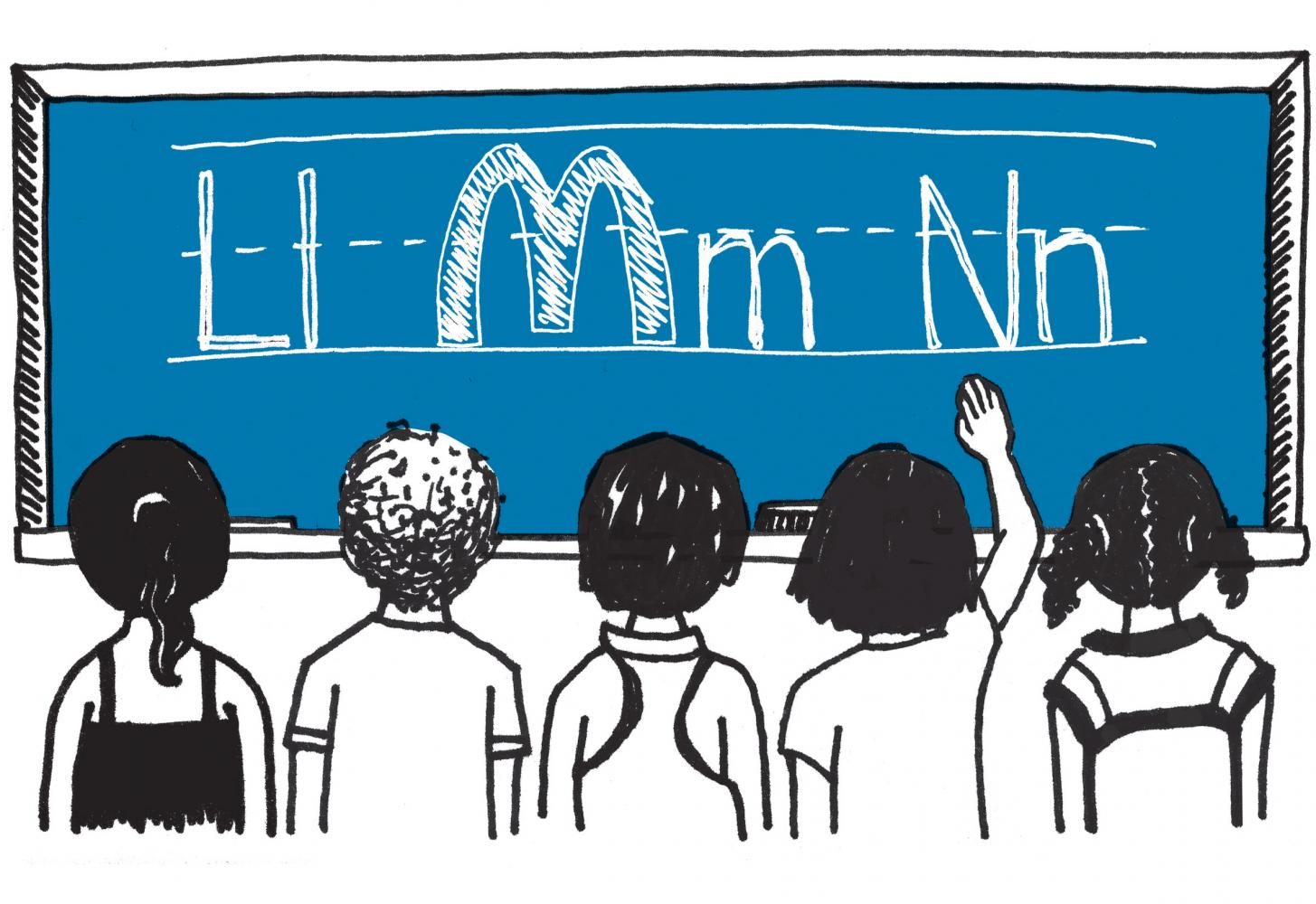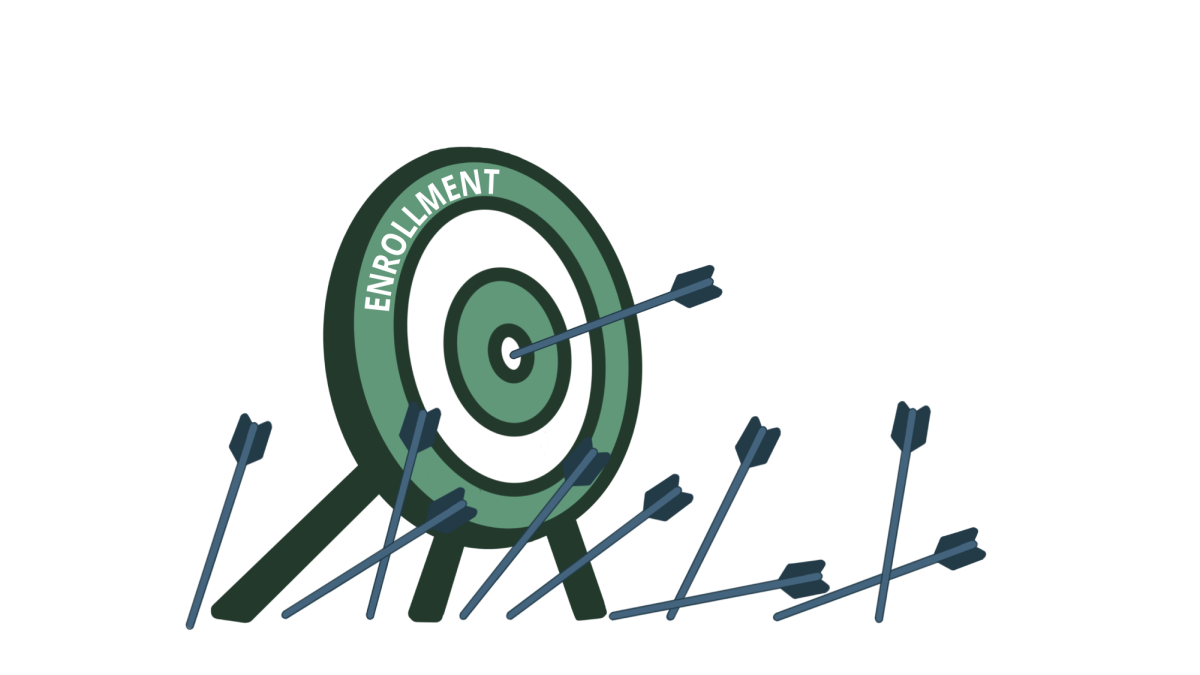Volunteers for Empire: Our Help Isn't Helping
November 18, 2010
“Uh, all right,” I said in Spanish, “Now we’re going to play a game. I’ll draw an animal on the board, and you all raise your hands if you know its name in English.”
Here I was in a villa miseria, an urban shanty town on the outskirts of Santa Marta, Colombia. I had decided to devote a month of my year studying abroad to doing something “constructive” — something that would separate me from all the rich North American travelers who vacationed in Latin America, oblivious to the indigent poverty all around them.
So I was teaching English to a group of students between the ages of five and 18 in the dirt backyard of a two-room shack. The family of four that lived there shared one bedroom and had no indoor plumbing. The neighborhood was a wasteland of globalization — the market had managed to dump some cheap goods, but the price the community paid for them was dependency and degradation. Children played among jumbles of brand-name trash in the streets. Cheery advertisements for beer and soda glared down from the sides of convenience stores — the only stores around — at folks who scraped by on two daily meals of rice and beans. And I found myself in the middle of it all, not knowing what the hell I was doing.
The Pictionary-style game wasn’t the worst learning aid I had improvised, but attempts to jumpstart my students were always a reminder of my stinging failure to make any progress.
I sketched a dog on the whiteboard. No one raised a hand.
I trudged home from class that day feeling both dejected and curious. I apparently didn’t know how to teach English, but why did I feel so capable in the first place? And what was teaching English going to do anyway? Had I reflected beforehand on the significance — or insignificance — of my efforts in Santa Marta, I would never have gone at all.
***
Service is our core ethic here at AU. Our motto says it all: “Ideas into Action. Action into Service.” But that three-part translation isn’t always so easy. Even when our ideas drive us to act, service is not necessarily the result.
Sarah Robbins, a senior at AU studying international studies and health promotion, volunteered with a home-based health care organization while studying in Nairobi, Kenya. She had gone abroad, like me, with good intentions and high expectations.
“I thought that since I kind of had a grasp on the language and had done this before that I’d be a lot more help,” said Robbins. “After dealing with it for the first couple of months, it was kind of the opposite. I was just a burden. I couldn’t really keep up with the conversation so I felt like I was just being dragged along.”
Laura Castelli, a senior in SIS, was with Robbins in Nairobi. She interned with The Center for Domestic Training and Development, a support organization for women who had migrated to the city in search of work. Castelli had gone believing she could offer something, but was surprised when her supervisors asked her to teach a class about reproductive health, a task she wasn’t qualified to tackle.
“I felt like in that society they really honored elders, and I was so young. But because I was white, it was like my opinion was ‘it,’” she said. “They always looked to me.”
She found this sort of unwarranted esteem throughout her work in Nairobi. Her Kenyan supervisors wanted her help with IT work, even though she admits she’s no computer expert. Then they asked if she could edit some fundraising materials they had drafted, but according to Castelli, their British colonial past meant they were fluent English speakers.
I was familiar with that pattern. When I was in Santa Marta, the founder of the organization where I worked asked me if I wanted to design a comprehensive curriculum or organize an international fundraising drive. Of course, I could barely conduct a few English classes, let alone take on one of those weighty jobs in my one-month stint.
This experience isn’t uncommon, according to Tori Hogan, former international aid worker and creator of the web documentary series “Beyond Good Intentions,” which explores the effectiveness of international development aid. Local staff and management tend to project imagined expertise onto their foreign volunteers.
“With volunteers there, the local management is always questioning themselves, and they might lose self confidence,” Hogan said.
Locals flatter us, but they don’t really expect us to do all that much. Can’t make it to a meeting on time? Not a problem. Can’t make it at all? Don’t worry about it. We know you American kids mean well, and we should be thankful you’re here at all. As one American co-volunteer told me over after-work cocktails: “I guess that’s why I love volunteering. Because no one can ever expect too much of you!”
Such a statement begs the question: who is serving whom?
***
Ivan Illich, an Austrian philosopher and social critic, compared the role of volunteers like us to that of missionaries. In a 1968 address to a group of young American volunteers about to leave for Mexico, he told them: “You are ultimately — consciously or unconsciously — ‘salesmen’ for a delusive ballet in the ideas of democracy, equal opportunity and free enterprise among people who haven’t the possibility of profiting from these.”
His point is that when volunteers like me arrive in places like Santa Marta, Colombia, we’re not “helping.” Instead, we are walking advertisements for a basket of ideological goods that are irrelevant in the context of complete marginalization – cultural ideas that only appeal to us because they justify our excessive wealth.
All over the global South, the United States is the exemplar of development, making us volunteers an embodiment of the desired standard of living in underdeveloped countries. But even more, the entire institution of international aid is based on the superiority of our way of life (Democracy! Equal opportunity! Free enterprise!) and helping these poor “underdeveloped” folks achieve the same enlightened system we have.
My impact as a volunteer was to create an ideological space for accepting the status quo. I was like a Christian missionary who tells the natives: “Don’t worry if it seems bad now — it will all pay off in the end.” But there’s nothing equal about the opportunities given to a child who grows up in a Colombian slum, and there’s nothing democratic about a political system run by a wealthy elite.
It won’t pay off in the end. Teaching English could never solve the problems faced by a dirt-poor community, ignored by its own national government. At best, one or two of my students might eventually master the English language, giving them the cultural capital they need to leave home in search of opportunity among Colombia’s elite or with some transnational company. Even this would bring little substantive change: I’d be helping one lucky kid, but at the same time bolstering a system of cultural dominance that won’t permit economic advancement for those who can’t speak English.
And that might be the most disturbing of the realizations I’ve had since returning from Colombia: Even when volunteer efforts like mine are successful, all they do is strengthen the current state of things.
“Whether sincere or hypocritical, [charity] is the logical concluding point of capitalist circulation, necessary from the strictly economic standpoint, since it allows the capitalist system to postpone its crisis,” political and social theorist Slavoj Zizek writes in his book In Defense of Lost Causes. In other words, charity doesn’t bring greater equality. It just ensures that unequal conditions don’t get too unequal, since that would endanger the present system.
And this system, it seems, is what volunteers really serve.
***
In light of all this, some might ask, “Well what am I supposed to do? Just stay home? Not even try to help?” But the real solutions might be closer to home than we realize. The core institutions that reproduce global inequality — the IMF, the World Bank, Congress, the White House — sit just a few blocks away from AU. Students here have a unique measure of access to the levers of global change. We can stand up together and say “Enough!” to those who champion neo-liberal policies and free markets without acknowledging their destructive side-effects.
Instead of flying halfway around the world to reinforce these failed policies, we could be marching downtown to really change them. Maybe we wouldn’t see that change in our lifetime. Maybe we’d never be recognized for our efforts. But maybe that is the real meaning of service: to lose ourselves in a collective struggle toward a brighter future. •
Illustration by Hannah Karl.



